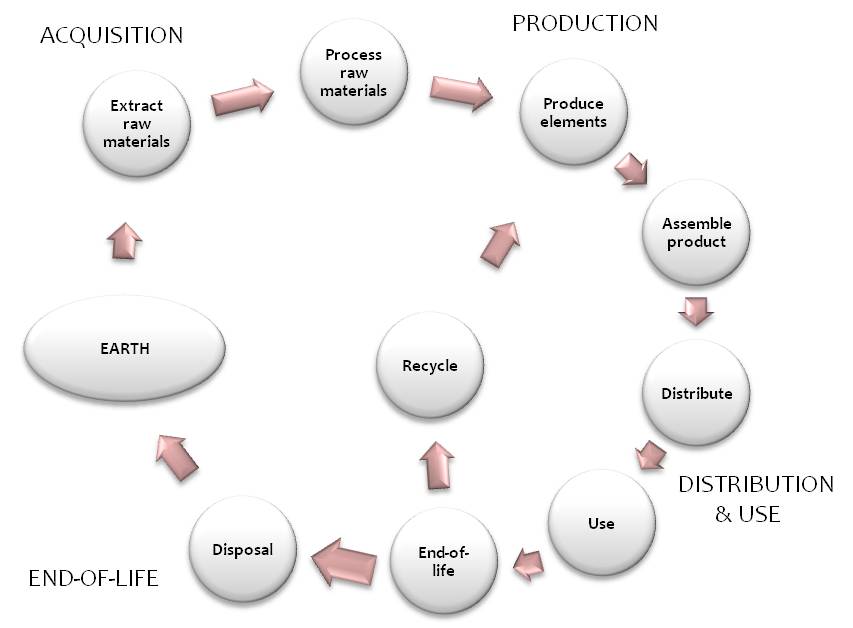LCA - Life Cycle Assessment (or Life Cycle Analysis)
A systemic approach to identifying and quantifying the environmental impacts of products, services and organisations
A systemic approach to identifying and quantifying the environmental impacts of products, services and organisations
Life Cycle Assessment (LCA - sometimes also referred to as Life Cycle Analysis) studies the environmental aspects and quantifies the potential impacts (positive or negative) of a product (or service) throughout its entire life: from the winning and processing of raw materials, through component production and product manufacture, to use and ultimate disposal. LCA considers environmental impacts in a number of categories, such as resource use, climate change effect, water pollution, waste production, etc.
ISO standards ISO 14040 and ISO 14044 set out conventions for conducting LCA.
LCA quantifies a range of environmental impacts - such as resource use and ecological consequences - and impacts on human health:
LCA can also be extended to cover other sustainability themes, such as social impacts.
LCAs range from rapid, qualitative evaluations to large-scale, quantitative studies - and include single-issue studies - or 'footprints' - such as carbon footprints and water footprints.
LCA is also used to prepare the environmental information presented in Environmental Product Declarations (EPDs).
Whichever type of LCA is undertaken, objectivity is important. Adherence to the relevant ISO standards or EPD scheme is particularly crucial if the results of any study are to be used to support marketing claims.
Conducting an LCA requires an examination of the extended product system – the network of activities that transforms raw resources into products, transports them to market and enables their use, then finally removes and treats items that are no longer wanted. Such systems exist for services just as they do for manufactured goods, so LCA can be applied to services as well as to physical products.
Life Cycle Assessment can be applied to an organisation, its supply-chain and product use to find "hotspots": those specific activities which create particularly negative (or positive) environmental impacts. This enables the organisation to focus its environmental efforts wherever they are most effecive in the entire value-chain.
![]()
carry out an LCA . . . calculate a carbon footprint . . . prepare an EPD . . .

The latest version of the environmental management standard ISO 14001 (ISO 14001:2015) requires organisations to apply life cycle thinking to their environmental management, which implies considering each stage in the life cycle of their products/services, from design and purchasing to use and final disposal.
Because of its whole-life perspective, LCA is a great tool for understanding the wider benefits of environmental improvement actions and exploring trade-offs that arise from process changes or design decisions. In business, LCA can provide environmental insight to inform purchasing decisions, product design, process selection or waste management strategies. The results of LCA can also be used to inform business strategies and government policy-making.
LCAs are used to:
LCA studies environmental product declarations (EPD) carbon footprinting water footprinting LCA reviews
LCA is a great decision-support tool in management and can bring substantial competitive advantages.
This flexibility means that LCA needs to be deployed with care - take advice from an experienced practitioner before you start: contact EuGeos.
We have carried out a wide range of LCA studies to inform a variety of decisions in business and the public-sector.
We know that each LCA project is unique: we will work with you to understand your specific needs and objectives and design an LCA which meets them.
LCAs can be carried out with ad-hoc spreadsheets and databases, but there are several specialist software tools available on the market. At EuGeos we have used several; now all our LCA projects are prepared using openLCA